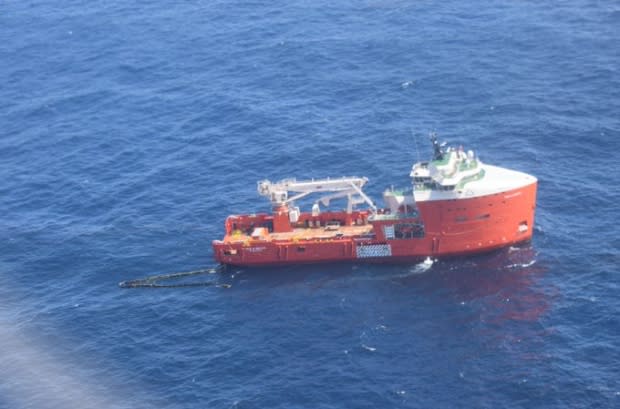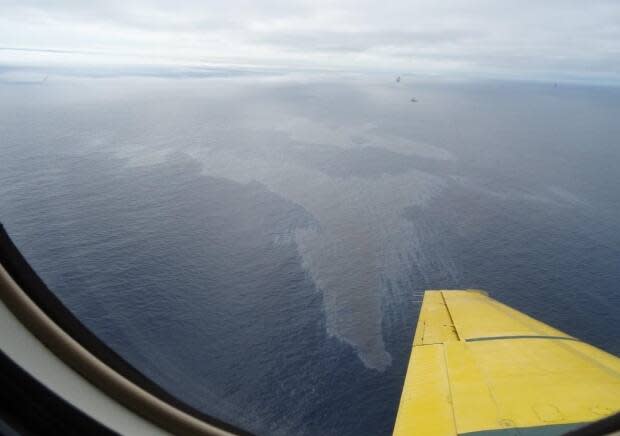Hibernia remains shut down as support vessels clean up oil spill

Several support vessels were near the largest offshore oil platform off Newfoundland Sunday, as cleanup work continued on an oil spill that suspended production at Hibernia.
In a statement Saturday night, Hibernia Management and Development Co. (HMDC) said four vessels have been collecting oil.
A mixture of 12,000 litres of oil and water spilled into the ocean on Wednesday.
The company said five third-party wildlife observers were also in the field.
It noted that a report had been made about an oiled bird.
"An attempt was made to recover the bird utilizing a fast rescue craft, however, when the crew reached the area it could not locate the bird," the statement said.
The report has been relayted to regulatory authorities, including the Canadian Wildlife Service, the Department of Fisheries and Oceans and the Canada-Newfoundland and Labrador Offshore Petroleum Board.
The company said the Seabird Rehabilitation Centre is on standby as a precautionary measure.
Flyovers continuing
HMDC said the vessels Atlantic Merlin and the Paul A Sacuta have deployed what are called single vessel side sweep measures. The vessels Atlantic Shrike and the Atlantic Kestrel have also been collecting oil using additional mechanical recovery equipment.

Observations from the vessels and fly-overs continue.
The company said all platform personnel are safe, and "production remains shut in," as the investigation continues.
Hibernia is owned by a conglomerate of oil companies under the umbrella of HMDC, with the largest partner being ExxonMobil.
This latest offshore spill is the second in the past year, after Husky Energy spilled 250,000 litres of oil into the North Atlantic last November. It was the largest spill in the history of the province's offshore.
Read more articles from CBC Newfoundland and Labrador

